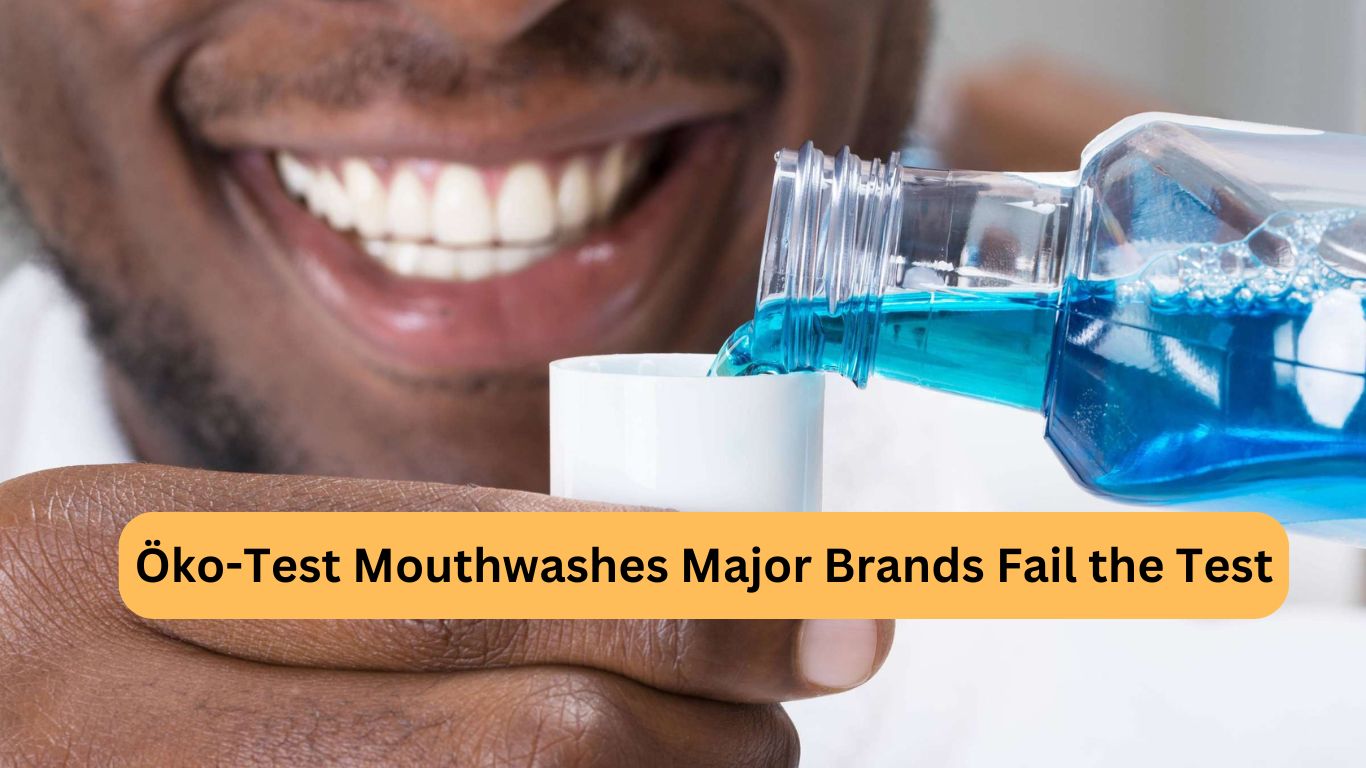Mouthwash is a staple in many people’s daily oral hygiene routines, promising to freshen breath, kill bacteria, and provide an extra layer of cleanliness. However, a recent investigation by Öko-Test, a well-known German consumer protection organization, has revealed some unsettling truths about the safety and effectiveness of these products. According to their findings, several major brands of mouthwash failed the test, raising concerns about the ingredients used and their potential health impacts. This article will explore the details of the Öko-Test mouthwash review, the reasons behind the failures, and what consumers should consider when choosing a mouthwash.Öko-Test Mouthwashes Major Brands Fail the Test
What is Öko-Test?
Before diving into the results, it’s essential to understand what Öko-Test is and why its evaluations are so significant. Öko-Test is a German consumer organization that conducts independent testing on a wide range of products, from food and cosmetics to electronics and household goods. The organization is known for its rigorous testing standards, focusing on the environmental impact, health risks, and overall safety of products. A good rating from Öko-Test is highly regarded, while a poor rating can significantly impact a product’s reputation and sales.
The Importance of Mouthwash in Oral Hygiene
Mouthwash is often marketed as an essential part of maintaining oral hygiene. It is designed to reduce plaque, prevent cavities, and freshen breath. For many, it serves as a convenient supplement to brushing and flossing, offering a quick way to cleanse the mouth, especially when on the go. However, not all mouthwashes are created equal, and the Öko-Test review has shed light on some concerning issues with popular products.
Key Findings of the Öko-Test Mouthwash Review
The Öko-Test review of mouthwashes included an analysis of various products from both well-known and lesser-known brands. The results were surprising and, in some cases, alarming. The key findings of the review are as follows:
1. Harmful Ingredients Detected
One of the most significant concerns raised by the Öko-Test was the presence of potentially harmful ingredients in several mouthwashes. Some products contained chlorhexidine, a powerful antiseptic that, while effective at killing bacteria, can also cause side effects such as staining of the teeth and altered taste. Additionally, certain mouthwashes were found to contain triclosan, a chemical that has been linked to hormonal disruptions and antibiotic resistance.
2. Misleading Claims
Several brands were found to make misleading claims about the benefits of their mouthwashes. For example, some products advertised themselves as “natural” or “herbal” but contained synthetic chemicals and artificial flavors. The Öko-Test review criticized these brands for not being transparent about their ingredients, potentially deceiving consumers who are looking for genuinely natural products.
3. Environmental Impact
The Öko-Test also evaluated the environmental impact of the mouthwashes, including the sustainability of their packaging and the biodegradability of their ingredients. Many products failed in this regard, using non-recyclable plastics and non-biodegradable chemicals that contribute to environmental pollution.
4. Ineffectiveness of Some Products
Surprisingly, some mouthwashes were found to be ineffective in achieving their primary purpose: improving oral hygiene. These products did not significantly reduce plaque or bacteria levels, calling into question their value as part of a daily oral care routine.
Brands That Failed the Test
Several well-known brands were among those that failed the Öko-Test. While the review did not single out specific companies in the public report, it emphasized that many of the products from leading brands did not meet their stringent criteria for safety and effectiveness. This failure is particularly concerning given the trust that consumers place in these brands.
What to Look for in a Safe and Effective Mouthwash
In light of the Öko-Test findings, it’s crucial for consumers to be more discerning when choosing a mouthwash. Here are some tips on what to look for:
1. Check the Ingredients
Always read the ingredient list before purchasing a mouthwash. Avoid products containing chlorhexidine and triclosan, as well as those with artificial colors, flavors, and preservatives. Look for mouthwashes with natural ingredients like essential oils, xylitol, and aloe vera, which can offer effective oral care without harmful side effects.
2. Look for Certifications
Choose products that have been certified by reputable organizations, such as the German Dental Association (DGZMK) or other similar bodies in your country. These certifications indicate that the product has been tested and meets specific safety and effectiveness standards.
3. Consider the Environmental Impact
Opt for mouthwashes that use recyclable packaging and biodegradable ingredients. Some brands offer mouthwashes in glass bottles or use refillable containers, reducing their environmental footprint.
4. Avoid Misleading Labels
Be cautious of products that make vague or exaggerated claims. Terms like “natural” and “herbal” are not always regulated, so verify the authenticity of these claims by checking the ingredient list.
Alternatives to Traditional Mouthwash
Given the concerns raised by the Öko-Test review, some consumers may prefer to explore alternatives to traditional mouthwashes. Here are a few options:
1. Oil Pulling
Oil pulling is an ancient practice that involves swishing a tablespoon of oil (such as coconut oil) in your mouth for about 15-20 minutes. This method is believed to reduce harmful bacteria, improve gum health, and freshen breath naturally.
2. Homemade Mouthwash
You can create your own mouthwash using natural ingredients like baking soda, salt, and essential oils. These DIY mouthwashes can be just as effective as commercial products without the risk of harmful chemicals.
3. Herbal Mouth Rinses
Herbal mouth rinses made from ingredients like green tea, peppermint, and sage can provide a natural alternative to conventional mouthwashes. These rinses are gentle on the mouth while still offering antibacterial benefits.
Conclusion
The Öko-Test review of mouthwashes has highlighted some critical issues with popular products, from harmful ingredients to misleading claims and environmental concerns. As consumers become more aware of these problems, it’s essential to choose mouthwashes that prioritize safety, effectiveness, and sustainability. By being informed and selective, you can ensure that your oral care routine supports not just your health but also the well-being of the planet.
